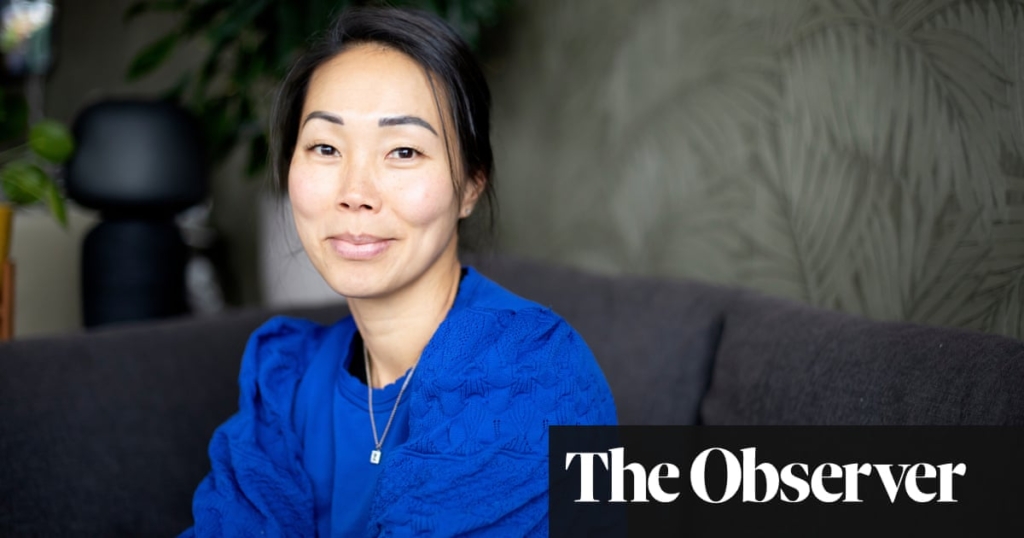Bu içerik, Hollanda’da çocuklara soyadı geçirme konusundaki yasal düzenlemeleri ve bazı kadınların bu konuda yaşadığı sorunları ele almaktadır. İçerikte, kadınların çocuklarına soyadı geçirme hakkında partnerleriyle anlaşamadıkları durumlarda karşılaştıkları zorluklar ve Hollanda’da çocuklara soyadı verme süreciyle ilgili detaylar yer almaktadır. Ayrıca, kadın hakları örgütü Clara Wichmann’ın bu konuda destek verdiği kadınların hikayelerine ve bazı uzmanların yasal düzenlemelerin cinsiyetçi olduğunu düşündükleri eleştirilere de yer verilmektedir. İçerikte, bazı kadınların çocuklarına kendi soyadlarını geçirmek için mahkemeye başvurdukları ve bu konuda yaşadıkları mücadeleler anlatılmaktadır.
[ad 1]
Kaynak: www.theguardian.com
When 43-year-old Rebecca Lee took her birth mother’s Korean surname, it was a revelation. “I was adopted and got a Dutch name but I never felt completely Dutch,” she says. “When, a few years ago, I first went to Korea, things fell into place. You don’t just go ‘one, two, three’ and change your name, but now I feel more whole.”
The entrepreneur from Groningen split from her husband and wants to give her five-year-old daughter “Lee” as part of a double-barrelled surname – but she cannot, under a Dutch law that some women, a leftwing MP and legal experts believe is unfair.
“[My ex] thinks I should carry my name for longer before I give it to her,” she says. “But she is with me half of the time and the other half with her father, and I think that she should have a bit of me. She can be proud that she has Dutch and Korean blood.”
Lee is just one of a group of women who have gone to court in an effort to pass on names to children when their partners have refused, in the surprisingly old-fashioned Dutch system.
Until 1811, children in the Netherlands automatically took their father’s surname. From 1998, parents could choose one or the other. When a new law came in this year allowing double-barrelled names, parents of those born from January 2016 also got this right – but only if both parents agree. And there is a deadline of 31 December to register.
Women’s rights organisation Clara Wichmann is supporting women who have taken their dispute to court. “In our opinion, this is in contradiction with article 13 of the European convention on human rights – [the] right to an effective remedy,” said Linde Bryk, its head of strategic court cases.
“The law builds on a system in which mainly the father’s surname was passed on. This now disadvantages and indirectly discriminates mothers. The law is based on gender stereotypes that conflict with the UN convention on the elimination of all forms of discrimination against women … why is it not the default option that a child receives the surname of both its parents?”
Since the organisation raised the issue, many have come forward to say the Napoleonic system is sexist. Journalist Christel Don – whose son had no surname for six years because she and her partner didn’t want to choose – is pleased but said the law’s “shadowy side” means women are effectively discriminated against.
GreenLeft-Labour MP Songül Mutluer believes the clumsy formulation of the law is a “textbook example of sex discrimination” and has submitted parliamentary questions about it. “Women need to consult their partner about which surname their child will receive, in the knowledge that if they don’t agree, they will get the short straw,” she said. “The law needs to be amended so it’s not only the will of one parent, the man, that is decisive in stopping a second surname being registered.”
Unlike the UK – where anyone can change the name by deed poll – some European countries have restrictive rules. A Dutch law needed to be passed so that people given denigrating “ex-enslaved” surnames could change them. University of Amsterdam associate cultural sociology professor Kobe De Keere said that names carry class signals and racial stigma: research has shown certain ethnic names are less likely to be invited for interview, for instance.
“People absolutely do [make assumptions], although people would definitely say they don’t because that fits the Dutch habit of pretending that everybody is equal,” he said.
A Dutch justice ministry spokesman said the government was working on answers to Mutluer’s questions. But for Annemijn Niehof, 46, from Amsterdam, passing on her family name to her three-year-old daughter is so important that she is appealing after losing in court to her ex-partner. “She should know it is important to fight for equal rights,” she said.
“She is named after [civil rights activist] Rosa Parks – that’s her middle name. Half of her is made from him, half from me. That is her foundation.”







Yorumlar kapalı.